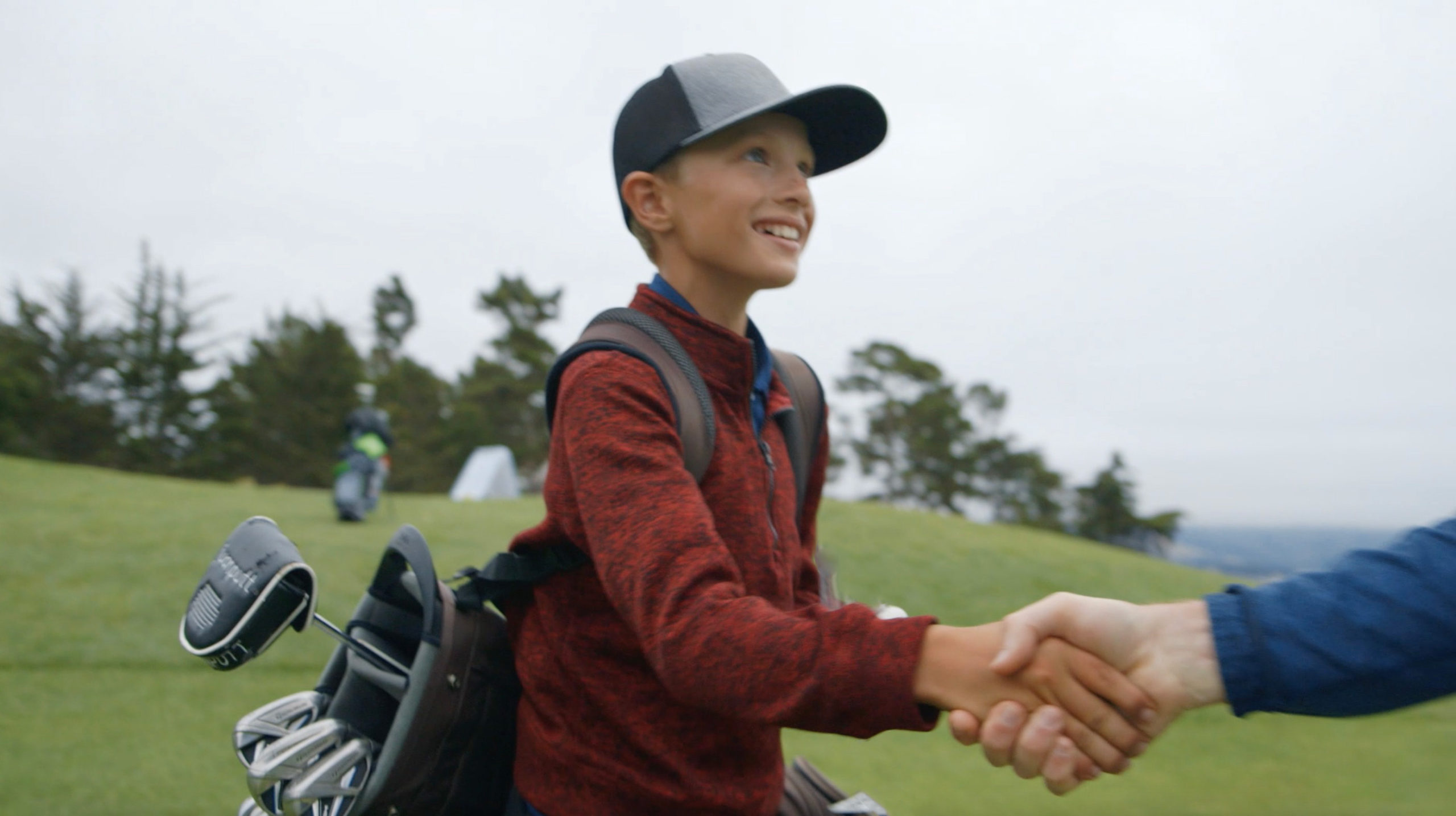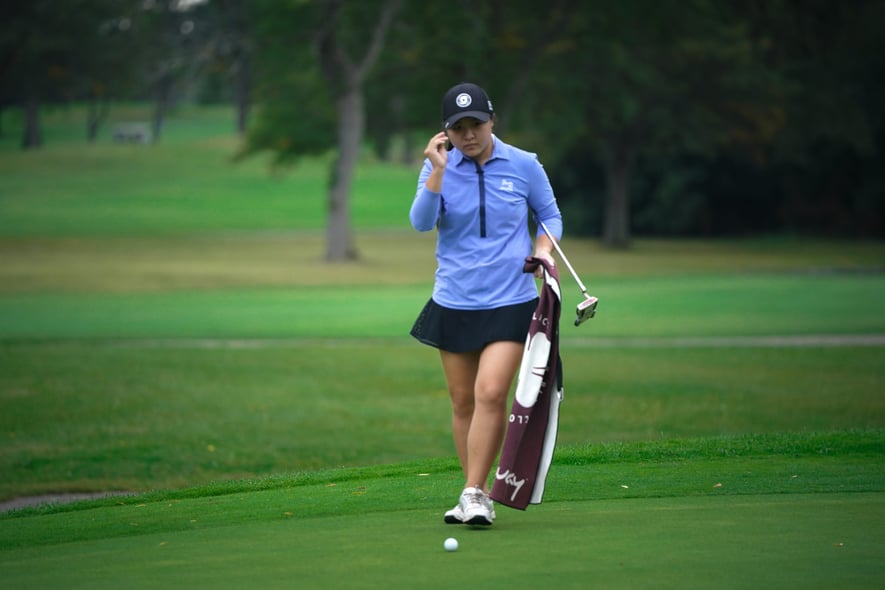
Early Lessons Lead to a Lifetime of Play
There are many reasons parents want their kids to learn to golf as early as possible. First, parents know it is a sport that their child can use for personal and employment gains throughout their lives. Second, similar to learning a language, the earlier one learns, the better. Both mastering a language and learning to golf require a significant commitment to get through the early stages, and young golfers naturally have more time to practice and learn the game. Learning golf as an adult is still possible, but life obligations can make it more difficult to find the time to practice, much less play.
Finally, parents introduce golf to their kids because they know that this lifetime sport teaches valuable life lessons. Young golfers think they’re learning how to drive, chip, and putt. Parents know that beyond the technical aspects of the game, their young golfers will be taught character-shaping lessons that help them become good golfers, and good people.
Integrity is in the foundation.
Let’s start with the fact that golf is based on personal integrity. Kids learn early on that in golf, you tell the truth - period. Golfers are expected to count each stroke, play balls where they lie and respect the course and other golfers… every single round. In golf, dishonesty and anything contrary to following the basic rules results in a penalty. When kids learn these non-negotiables of golf, they get a sense of how these guidelines should be followed in life as well. The bottom line? Golf demands honesty and respect, and young golfers are being shaped by these principles as they learn the game.

Interaction with adults.
The strong foundation of integrity prepares young golfers for the world at large - as professionals and members of society. Another way to say this is that golf prepares kids to interact in an adult world. Young golfers don’t go to special “kid” golf courses to learn how to golf. Young golfers are introduced to the world of golf as it is, and in turn, are expected to interact with adults and behave appropriately. When young golfers take lessons, for example, they’re often surrounded by adults. They are introduced to club protocols like dress codes, rules of conduct, and social norms. In this environment, young golfers have many opportunities to see adult interactions and interact with adults themselves. They may not realize it at the time, but this exposure helps young golfers become more confident and able to communicate with people of all ages and backgrounds. Finally, when exposed to “the world of golf,” young golfers see the many opportunities available to them, such as employment in the clubhouse, grounds, or as a caddie. In all respects, golf grooms young people to interact with others with dignity and respect, adhering to protocols and using appropriate language.
Ongoing lessons in self-control and self-composure.
Golf also teaches lessons in self-control and composure - skills that come in handy when interacting with adults and peers, but especially when golfers find themselves in predicaments on the course. Golf, as we all know, offers countless opportunities to show composure. Bad shot? Take a deep breath. Another bad shot? More breaths and perhaps a note to self to spend more time at the driving range. Golf demonstrates the need to control one’s temper and keep composure in all types of situations, and it trains us to both get out of and stay within our heads, dealing with the ups and downs we face on the course. As golfers, we’re expected to show composure, keep it together if you will. The same goes for life - as young golfers learn how to act and react on the course, they start to realize that these behaviors will serve them in life too.

How to come back after a bad shot/learn from mistakes.
As one learns to fine-tune their self-control and temper, they also learn how to come back when bad shots happen. Young golfers are taught to shake off the mistakes, evaluate what went wrong, and regroup. As golfers, we’re taught to bounce back…with dignity. This skill is one that will serve golfers not only in their games, but also in their lives, where they can look at mistakes and disappointments as learning opportunities and chances to try again.
Golf lessons translate to life lessons.
When young golfers are exposed to the lessons of golf such as acting with integrity, learning how to interact with adults, maintaining self-composure and control, and coming back after bad shots, they’re paving their way to be successful, productive adults. As a bonus, they’re also learning a sport that offers a lifetime of opportunities to play around the world and meet interesting fellow golfers along the way. Sounds like an excellent investment in a child’s future!
Join the YOC community today at youthoncourse.org/join.